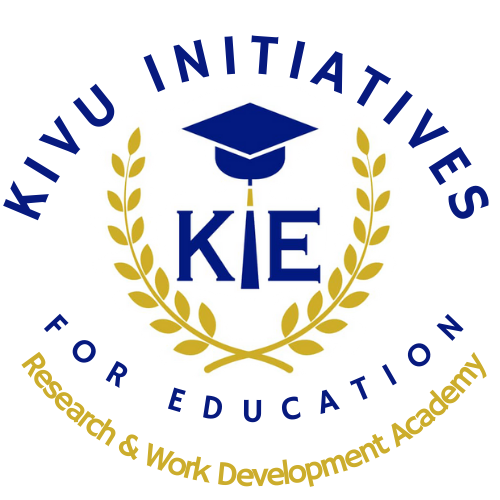We can’t
repeatedly rely on what does no longer generate solutions to outstanding
challenges of the 21st century interconnected, and technology driven
environment to protect our future. Young
people have the potential to lead, to innovate and inspire the change we want if
provided with skills and agency they need.
Kivu
Initiatives for Education engages youth in in building skills necessary for
success using Youth Participatory Action Research based education Interventions
and Integrated Positive youth development (IPYD) approaches. Kivu Initiatives for Education challenges the
business-as-usual model of developing youth skills development. How do training
practices allow young people to develop those skills? How can new models
challenge the institutional context for skill development differently from one
size fits all model ensuring linkage with local labor market needs?
KIE offers expertise focusing building Integrated
Positive Youth Development through “Five Cs” including competence, character,
connections, confidence, and compassion. Kivu Initiatives for Education provides
youth with:
Support: Motivational, emotional and
strategic supports to succeed in life. The supports can take many different
forms, but they must be affirming, respectful, and ongoing. Supports are
powerful when offered by a variety of people, such as parents and close relatives,
community social networks, teachers, youth workers, employers, health
providers, and peers who are involved in the lives of young people.
Offer opportunities: Chances for young people to learn
how to act in the world around them, to explore, express, earn, belong, and
influence. Opportunities give young people the chance to test ideas and
behaviors, and to experiment with different roles. It is important to stress
that young people, just like adults, learn best through active participation
and that learning occurs in all types of settings and situations.
Support
quality services:
Services in such areas as education, health, employment, and juvenile justice
which exhibit: 1) relevant instruction and information; 2) challenging
opportunities to express oneself, to contribute, to take on new roles, and be a
part of the group; and 3) supportive adults and peers who provide respect, high
standards and expectations, guidance and affirmation to young people.
Training: The
Youth Workforce Development Academy focuses on up-skilling of entry-level
workers and labor-market insertion of youth to enhance their skills,
reskilling, and upskilling them to progress their career and become cutting
edge Leaders able to create cultures of engagement that promote initiative,
teamwork and performance in challenging the status quo. In collaboration with
the Bilingual University of Congo, Youth Workforce Development Academy offers Integrated
Positive Youth Development leadership programs like Comprehensive
Leadership Programs (CLP), Executive Program for Administration (EPA),
International Education (IE), Digital Literacy Program, Future-Ready
Program (PFP), Big Brothers, Big Sisters Mentorship (BBM), and Work
readiness and Be Your Boss Programs.
 English
English
 Le français
Le français

